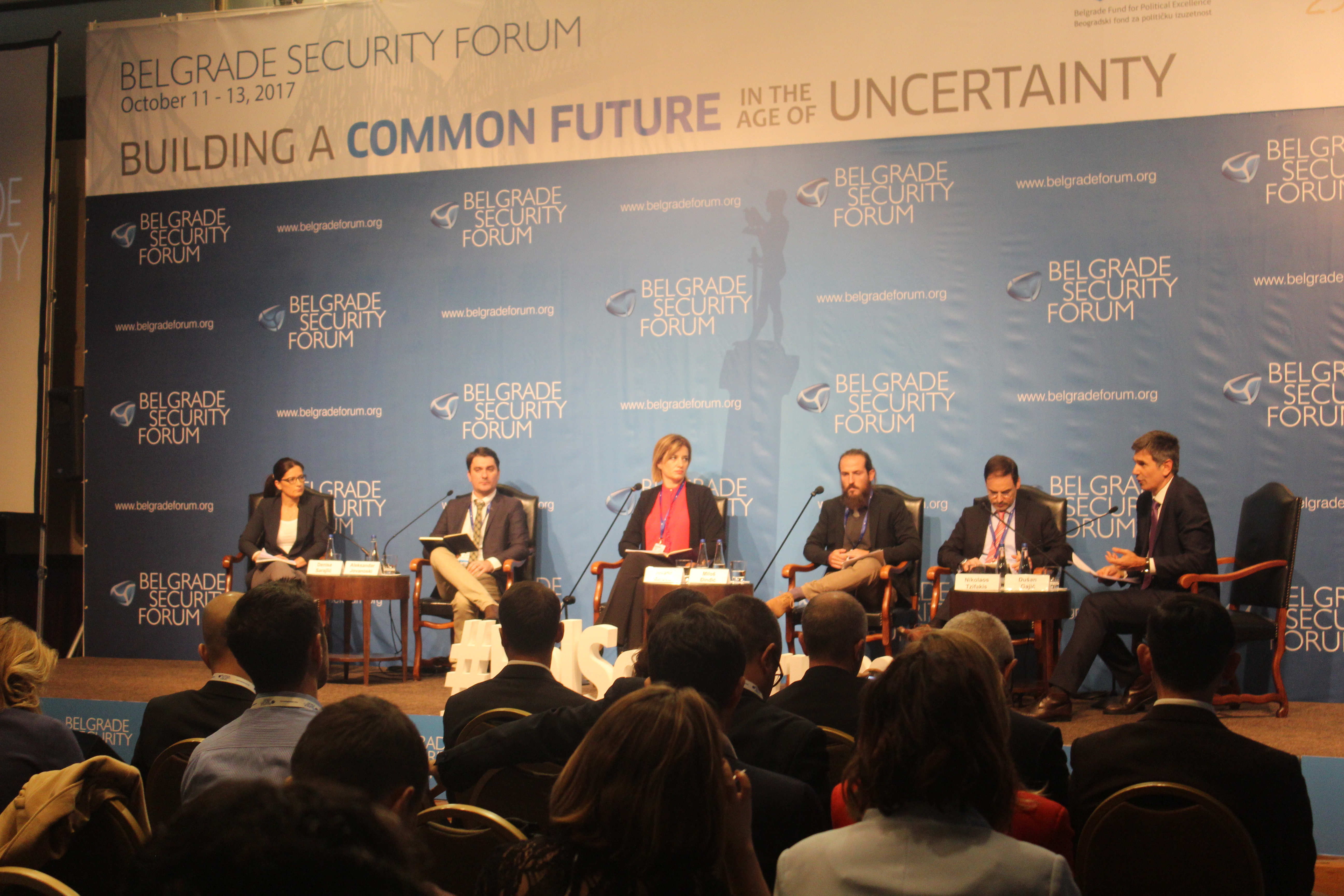TEN member organisations participated in Belgrade Security Forum (BSF)
Representatives of three TEN member organisations participated in this year’s, sixth Belgrade Security Forum (BSF) which was titled “Building a Common Future in the Age of Uncertainty”.
Milena Lazarević, European Policy Centre – CEP’s Programme Director, participated on one of the panels, held on the first day, named “Effects of Foreign Economic Influence on Sovereign Nations”. Other panelists included Pierre Mirel, now the Honorary Director of European Commission’s DG Enlargement Unit General for Albania, Bosnia and Herzegovina, Montenegro, Serbia and Kosovo Issues, Martin Heinemeyer, Founder and Director of start-up company from Belgium, Ruslan Stefanov, Director of Bulgarian Centre for Study of Democracy (CSD), and Andrew Wilson Managing Director of the Center for International Private Enterprise (CIPE). Ms. Lazarević, as a representative of one civil society organization from Serbia, painted a closer picture and attitudes to the participants regarding this topic.
Miloš Đinđić, a Senior Researcher in the CEP, was one of the participants at the panel held on the second day, “What if the Western Balkans Never Become Part of the EU”. Together with representatives of civil society organizations from Bosnia and Herzegovina, Montenegro and Macedonia, Đinđić spoke about what would happen in case the doors of the EU remain closed for Western Balkan countries. The panel was moderated by Dušan Gajić, RTS correspondent from Brussels.
“The reforms that we are implementing, we are implementing for ourselves, EU accession must not be an end in itself,” Đinđić claims.
He added that “we should be focused on reforms and our goal should be to better the lives of citizens and the creation of quality institutions, rather than focusing on membership date,” emphasizing the importance of reforming the public administration in this process.
Nikolaos Tzifakis, a Research Associate from the Wilfried Martens Center for European Studies agreed with Đinđić, adding that the country certainly needs to continue with reforms after they join the EU, because mere membership does not mean that the reform process is completed.
Jovana Marović, executive director of Politikon network in Montenegro, a country that leads the way in the process of EU accession, together with Serbia, said that, in the absence of EU enlargement to the Western Balkans, they still need to act according to the Stabilization and Association Process.
Panelists discussed how the recent rise of populism across Europe may affect populism in the Balkans. A representative of the Foreign Policy Initiative, Denisa Sarajlić, said that BiH citizens are disappointed because they expected that by this time all Western Balkan countries would be EU members. This disappointment can awaken EU populism that is already present in some member states, she added, stressing the fact that civil society must remind the EU of potential problems that populism can create in the Western Balkans region.
The role of civil society regarding the uncertain future of the EU in the Western Balkans was recognized by the panelists. Đinđić concluded that the EU will not disappear from the region even if the perspective of enlargement comes to a close and that the EU will continue its desire to maintain its influence, but that civil society will then have to exercise greater pressure on the state so it continues with implementation of reforms.
Source: European Policy Centre – CEP

